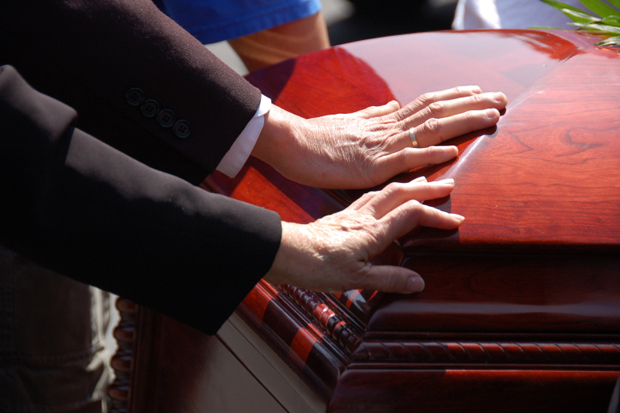Whether or not you believe in the afterlife, death remains an impenetrable mystery. One moment a person is making jokes and comments and observations about life; the next he is gone. What has happened to that store of wit and wisdom acquired over a lifetime, to that particular way of understanding and looking at things, to that unique muddle of thoughts and feelings that every individual has? Even if someone has gone to heaven, it is difficult to imagine that he has taken these things with him. If he did, they would hardly be compatible with eternal rest.
By my brother John’s bedside when he died, aged 87, on New Year’s Eve were a few books he had just been reading, among them works by Marcel Proust and Thomas Mann in their original languages and a new book, Money: The Unauthorised Biography by Felix Martin. What was the point of him reading these books, one might ask, when whatever he had learnt from them would simply vanish? The answer, I suppose, is that reading them could have given him pleasure and stimulation at the time, and perhaps that’s enough. But it makes you realise how little you can ever really know about anybody when they die so full of secrets.
John’s funeral was held last week in Northamptonshire in a village church so cold that the congregation breathed out mist when they sang. John’s lifelong affection for Germany and its culture was reflected in the first hymn, ‘Glorious things of thee are spoken’, sung to Haydn’s famous tune for the German national anthem, and in two Schubert Lieder sung by an outstanding young German baritone, Benjamin Appl, who also ended the service with a magnificent rendering of Bach’s ‘Bist du bei mir’. He is a singer to watch.
In between there were eulogies showing how nobody can do more to explain a person than to give their own subjective impressions of him. Giles FitzHerbert, a former British ambassador to Venezuela, delivered the main eulogy. He had known John first when he got married to Evelyn Waugh’s daughter Margaret in 1962, borrowing his house on Kew Green for the wedding reception. Then he had found John, eight years his senior, to be ‘really quite serious’ and wanting ‘to be taken seriously’.
How different he seemed 26 years later when Giles, posted to Caracas, saw a lot of him, since John, recently divorced, had left London to roam the Caribbean as an itinerant bookseller. There he seemed ‘tropicalised and gamier than his younger self’, a ‘slightly scandalous, always mischievous, often naughty and unfailingly entertaining Caribbean beachcomber’. John’s favourite Spanish saying, said Giles, was, ‘Que dulce hacer nada, y luego descansar’ (‘How sweet it is to do nothing, and then to have a rest’).
This, too, was a different John from the earnest history student at Cambridge, who so disapproved of his eight-year-old brother reading Enid Blyton books that he made a bonfire of them in the nursery. He was 12 years older than me and liked to carry me around, even after it had become quite clear that I had grown far too large for such treatment. He even gave me a teddy bear for my 15th birthday, and to my subsequent embarrassment I treasured it. Perhaps he is responsible for my never quite growing up.
He was scholarly and anti-intellectual, vain and modest, selfish and generous, domineering and insecure, all at the same time. Our sister Susanna, eight years his junior, told in her address how he once boasted that he could ‘bend her to my will’ and ‘make her do practically anything I wanted’. But this was the same vulnerable man who hardly dared open a letter, lest it contained something that might upset him. One of his oldest friends, the brilliant Austrian mathematical logician Georg Kreisel, 91, in a message from Salzburg read out at the funeral, recalled John talking about what was special about their friendship. He was, John had said, easily hurt by criticism, and Kreisel had never done or said anything to hurt him.
So there you are. You never really know about anybody, and John was perhaps more difficult to fathom than most. All there is to say really is that we loved him.
Got something to add? Join the discussion and comment below.
Get 10 issues for just $10
Subscribe to The Spectator Australia today for the next 10 magazine issues, plus full online access, for just $10.
You might disagree with half of it, but you’ll enjoy reading all of it. Try your first month for free, then just $2 a week for the remainder of your first year.













Comments
Don't miss out
Join the conversation with other Spectator Australia readers. Subscribe to leave a comment.
SUBSCRIBEAlready a subscriber? Log in